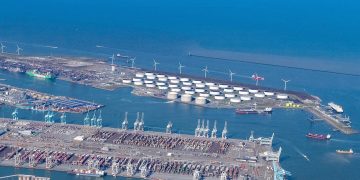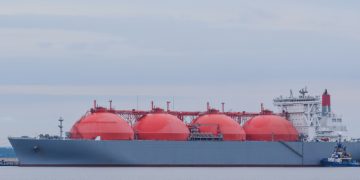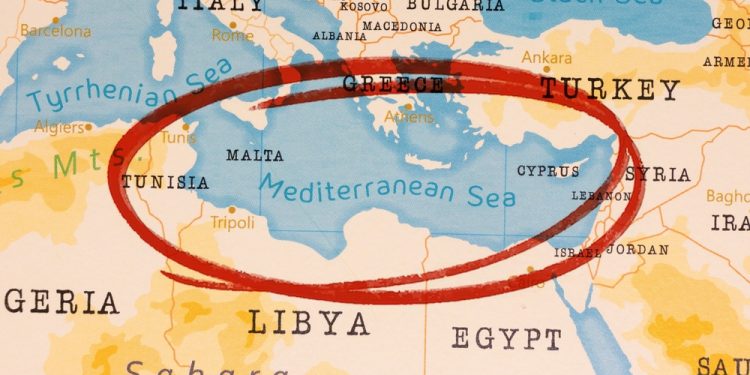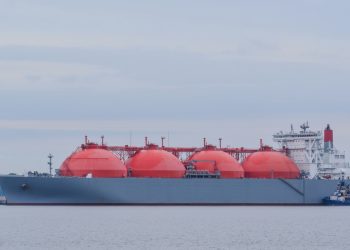Starting May 1, 2025, the Mediterranean Sea will become an Emission Control Area for Sulphur (SECA), significantly reducing harmful ship emissions and improving air quality for millions of people, with NABU leading efforts to push for stronger environmental regulations.
Under this new regulation, ships must drastically cut their toxic air pollutant emissions, with the sulphur content of the fuel limited to a maximum of 0.10%. This new limit represents a fivefold reduction compared to the previous regulation. NABU notes that this change will significantly reduce toxic air pollution exposure for around 250 million people living in the Mediterranean region.
Research shows that lowering air pollutant concentrations will not only improve human health but also benefit the aquatic and land ecosystems in the Mediterranean basin by preventing acidification. According to studies, this will prevent approximately 1,100 premature deaths and 2,300 cases of childhood asthma each year.
However, as NABU highlights, there is still a gap in the current regulations. Unlike the North and Baltic Sea ECAs and the recently agreed North-Atlantic ECA, the Mediterranean SECA does not include nitrogen oxides (NOx). It is crucial to address this issue and move forward with a regulatory framework that includes NOx emissions, ensuring greater harmonization across Europe. High nitrogen oxide concentrations are known to contribute to summer smog in Mediterranean cities, which poses a significant threat to human health. According to NABU, this regulatory gap needs urgent attention.
While the stricter rules for sulphur and particulate matter emissions are a major success, nitrogen oxide emissions remain under-regulated. NABU, in collaboration with its partner organizations, conducted nitrogen dioxide measurements in Mediterranean port cities during 2024. These measurements revealed that 24% of ports, including those in Italy, Spain, and Greece, exceeded the EU’s legal annual limit for nitrogen dioxide. In fact, the World Health Organization’s limit value was exceeded in 97% of the measurements, with some areas showing nitrogen dioxide levels more than twice the legally allowed limits.
Given that the latest measurements in Greek ports have shown excessive levels of air pollution — particularly in the port of Piraeus — now is the time to take proactive action and address this problem effectively
… said Giorgos Papadimitriou, Environmental Policy Officer, Hellenic Ornithological Society.
NABU points out that these findings underscore the need for stricter regulations on nitrogen dioxide emissions from ships in order to meet the existing EU standards. Establishing a Nitrogen Oxide Emission Control Area (NECA) in the Mediterranean is, as NABU notes, a necessary next step.
Unfortunately, not all ships will switch to clean fuels, but some may choose to comply by exhaust aftertreatment. By allowing such sulphur scrubbers as a mode of compliance we miss the chance to get rid of toxic heavy fuel oil and its threats to marine life. It’s time to ban this loophole that prolongs the utilization of the world’s most toxic fuels in shipping
… said Sönke Diesener Shipping Expert at NABU
Anna Gerometta, President of Cittadini per l’aria, said that May 1st, 2025, should be seen as a turning point for the protection of air quality in port cities, which in Italy are significantly impacted by shipping emissions. She explained that the large network “Let the Mediterranean breathe,” composed of committees and NGOs based in Italian port cities, celebrated the entry into force of the Mediterranean SECA and called on the Italian authorities to ensure its proper enforcement by significantly increasing the number and effectiveness of controls on ships.
Nicholas Barbara, Head of Conservation at BirdLife Malta, stated that Malta, being home to the largest shipping registry in Europe and located at the center of global navigation routes, would benefit from cleaner air emissions from shipping. He noted that this would improve national air quality and public health. He expressed hope that this milestone indicated that positive change was possible and mentioned the anticipation of a Nitrogen Emission Control Area being adopted next.
Kåre Press-Kristensen, senior advisor at Green Global Future, explained that the next step was to achieve even better collaboration on SECA compliance among all involved states to ensure full health benefits and maintain a level playing field for shipping. He stated that this was one of the key objectives of the EU-project LIFE4MECA.
Francisco Ferreira, President of ZERO in Portugal, mentioned that the entry into force of the Mediterranean ECA was a significant step toward a continuous area of reduced air pollution from ships. He added that the recent decision by the International Maritime Organization to proceed with the North Atlantic Ocean ECA in the future was also important.



























































